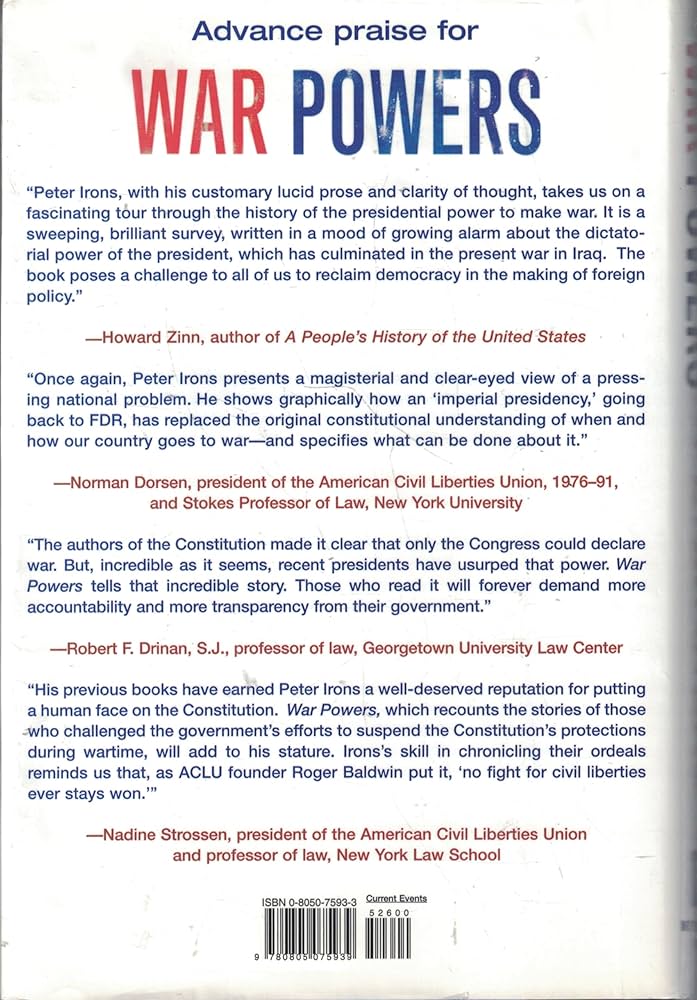Trump’s Confrontation with Iran: A Threat to Democracy?
The intent behind this piece is to raise awareness about potential threats to our democracy, so that you in turn can spread the information to others, thereby fortifying our defences against autocratic tendencies. Conflicts can be notably testing times, leading countries to become insular, granting extended discretion to authorities ostensibly for national security. Therein lies a hidden concern with the ongoing confrontation between Trump and Iran. Trump has previously attempted to wield three pretexts – terrorism, national emergency, and war – to secure extra power and validate his policies such as mass deportations, blanket tariffs, and increased control. His endeavors to seek legal vindication from laws granting presidents enhanced powers in crisis situations have been checked by both judiciary and public sentiment, to some extent.
But should the war with Iran escalate – which seems probable if Iran strikes back – the judiciary might hesitate to hinder a president in war-time and there might be public consent for such actions. This means Trump’s clash with Iran could afford him these three pretexts to further repress opposition domestically, narrow free speech, authorize unlawful searches and arrests, incarcerate critics, and increase military presence within the country. Signs of using ‘terrorism’ as a justification have already emerged. A recent bulletin from the National Terrorism Advisory System under the Department of Homeland Security has warned of an increased threat level in the US following the military strikes on Iran’s nuclear facilities. Retaliation from Iran seems inevitable.
Further, any counterattack from Iran will be leveraged by Trump to justify an escalating crackdown under the guise of ‘fighting terrorism’. Trump was already labeling various groups that he perceived as threats to the US as ‘terrorists’, including drug cartels and immigrants. Now that hostilities with Iran have escalated, expect an increase in the usage of terrorism-related rhetoric, and the Department of Homeland Security leading the response. In his first hundred days in officethis term, Trump proclaimed eight ‘national emergencies’, an unparalleled number in comparison to other recent presidents in the same timeframe. These ’emergency’ declarations have been wielded by Trump to expedite his domestic agenda bypassing Congressional legislation.
His declaration of an ‘invasion’ at the southern border provided the springboard for heightened deportations. An energy crisis enabled him to dilute environmental regulations. An incessant flux of such emergency decrees also fuels a sense of unremitting crisis, portraying America as endangered by foreign and domestic antagonists alike. This perpetually heightened alertness suits Trump’s self-branded image of struggling savior. With the war on Iran, anticipate a surge in such ‘national emergencies’ and the accompanied legal authority.
Trump has unsuccessfully tried to leverage the 1798 Alien Enemies Act to authorize his mass deportations without judicial oversight, as this law allows the prosecution of nationals of enemy nations only during a formally declared war, invasion, or predatory attack against the US. This legislation has only been invoked thrice prior to Trump, each instance being a Congress-sanctioned war: the War of 1812 with the UK, and during World Wars I & II. Each instance afforded the government enhanced powers to deport the nationals of the enemy party from the US.
It was utilized during the Second World War to justify the internment of Japanese-American citizens and has since been synonymous with some of the most egregious violations of civil liberties in the country’s history. As per an April 7th Supreme Court ruling, individuals targeted under the Alien Enemies Act must be given notice and appealed against their expulsion, including arguments over the law’s constitutionality and application. But a war with Iran could potentially justify Trump’s usage of the act. It’s notable that Trump has also not dismissed the possibility of invoking the Insurrection Act, which permits the deployment of active-duty military personnel within the US in instances of civil unrest or rebellion, a scenario that is decidedly more plausible in a country at war.
Trump aspires to be a ‘war president’. Everything he has undertaken so far aligns with the objectives of consolidating power in his hands and destabilizing democratic institutions – tasks conveniently easier executed for a war president. However, I share this information not with the intention of disheartening you or causing distress, but rather to urge you to be on high alert. This is to protect our democracy against further erosions wreaked by Trump under the guise of the aforementioned three pretexts.
Wars have an inherent tendency to test the limits of civil liberties, and considering Trump’s track record, the challenges to our freedoms could be stark. Stay safe and strong.



